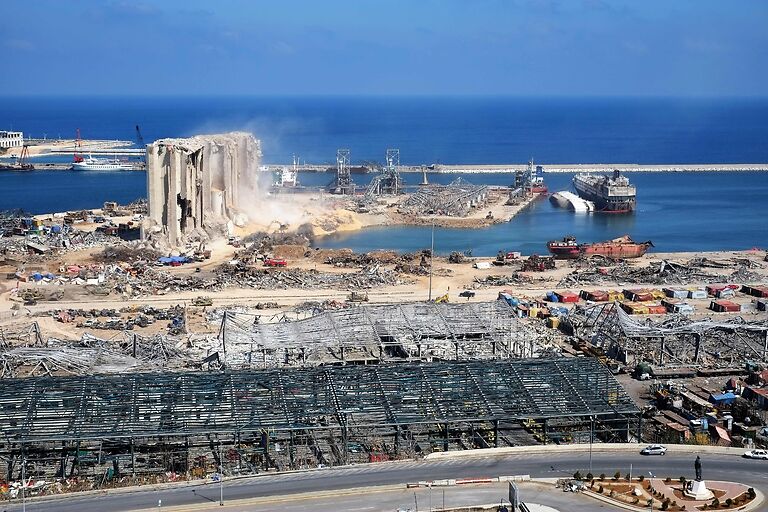On August 4, 11 am, most students in America were still waking up, taking advantage of time before school started. On August 4th, simultaneously, at 3 pm in Port Beirut, Lebanon, people had their houses flattened and destroyed.
2,750 tonnes of ammonium nitrate, stored without any safety precautions for over 6 years, caught fire and exploded in a massive reaction. Debris was flung 2 miles away into highly populated areas, New York Times said. “Dozens of nearby buildings — including grain silos storing around 85 percent of the country’s grain — were severely damaged or destroyed.” With so much land destroyed in the explosions, casualties reign high, with the explosion having killed at least 180, injured over 6,000, and left 30 missing.

Amid public outcry, several government officials have quit office under threats from civilians. “Three ministers have already stepped down, but there have been calls for the whole cabinet to go. Many have accused Lebanon’s leaders of culpability for the blast through their alleged negligence and corruption, BBC said.
Following the incident, Fadi Sawan, 60-year-old military investigative judge, has been seen leading the investigation to solve who was responsible for the earth shaking catastrophe. The third person suggested for this job, the results of Sawan’s investigation are crucial because they aren’t subject to appeal. Sawan is known for his strong independence against political interference in judicial cases, as mentioned by state media. His job is to determine who, if anyone, is responsible for the incident.
Several countries, including the US, Britain, Cyprus, Denmark, and Egypt, have been sending supplies and support to Beirut to help the nation recover. Repair and medical costs have been estimated as high as 15 billion dollars, with Lebanon’s economy taking a huge hit for this to follow through. The British Red Cross has set up an emergency appeal for Beirut here, where you can donate to assist medical and rebuilding efforts.
